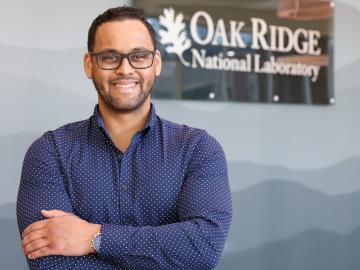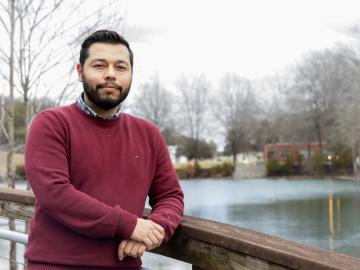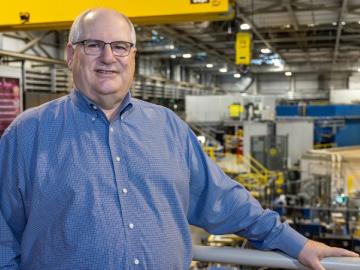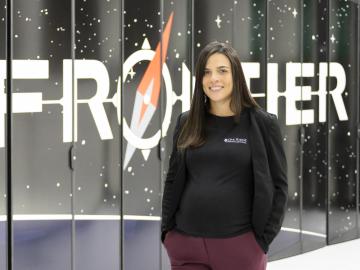Filter News
Area of Research
News Type
News Topics
- Artificial Intelligence (1)
- Big Data (1)
- Bioenergy (2)
- Biology (3)
- Biomedical (2)
- Buildings (2)
- Chemical Sciences (3)
- Clean Water (2)
- Climate Change (3)
- Computer Science (2)
- Coronavirus (1)
- Critical Materials (1)
- Cybersecurity (2)
- Decarbonization (3)
- Energy Storage (6)
- Environment (9)
- Exascale Computing (1)
- Frontier (2)
- Fusion (1)
- Grid (2)
- High-Performance Computing (3)
- Hydropower (2)
- Isotopes (4)
- Machine Learning (3)
- Materials (4)
- Materials Science (1)
- Mathematics (2)
- Mercury (1)
- Microscopy (1)
- Nanotechnology (1)
- National Security (6)
- Neutron Science (2)
- Nuclear Energy (1)
- Physics (2)
- Polymers (1)
- Quantum Computing (1)
- Security (1)
- Simulation (3)
- Sustainable Energy (1)
- Transportation (2)
Media Contacts

When Addis Fuhr was growing up in Bakersfield, California, he enjoyed visiting the mall to gaze at crystals and rocks in the gem store.

Hydrologist Jesús “Chucho” Gomez-Velez is in the right place at the right time with the right tools and colleagues to explain how the smallest processes within river corridors can have a tremendous impact on large-scale ecosystems.

The truth is neutron scattering is not important, according to Steve Nagler. The knowledge gained from using it is what’s important

Erica Prates has found a way to help speed the pursuit of healthier ecosystems by linking the function of the smallest molecules to their effects on large-scale processes, leveraging a combination of science, math and computing.




